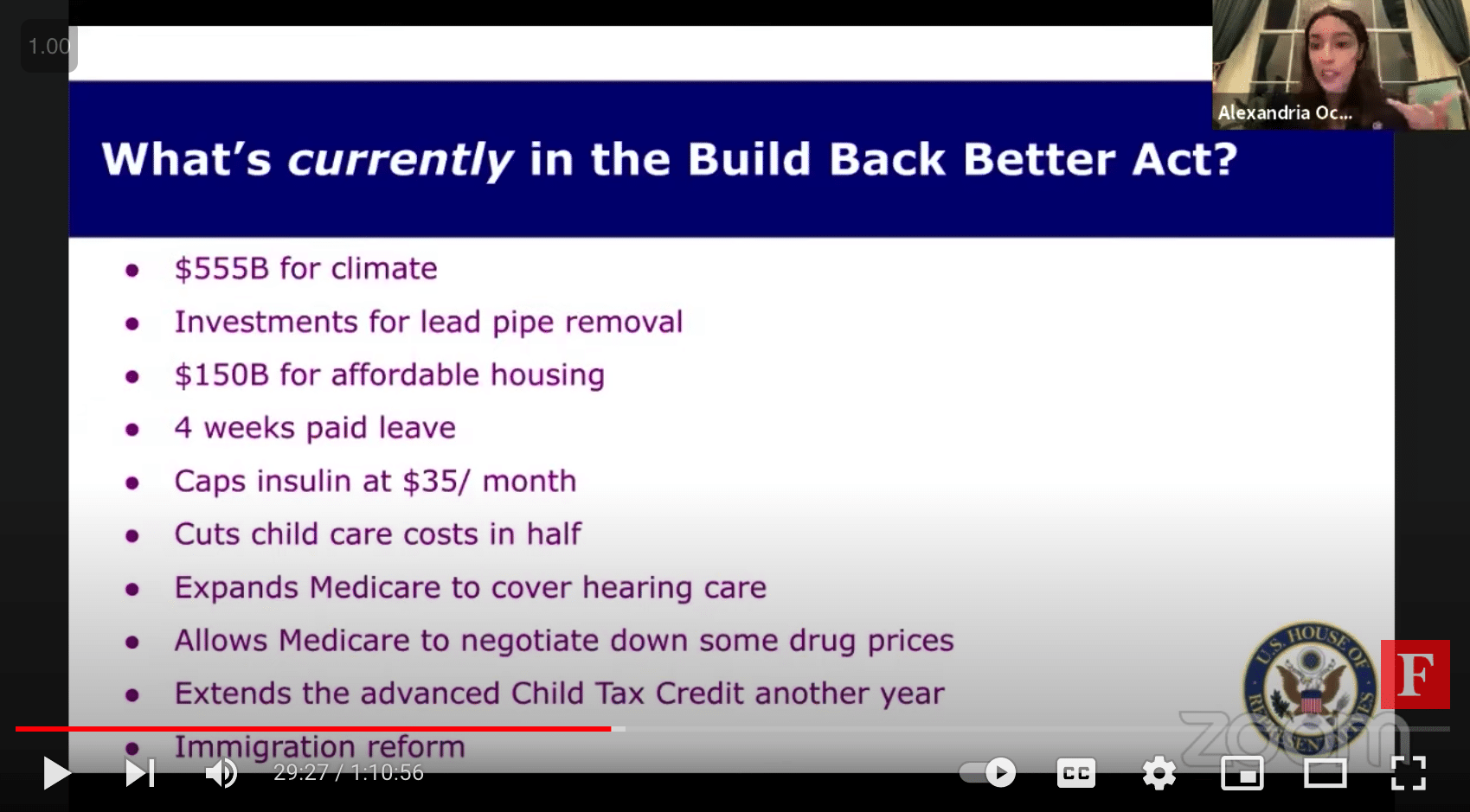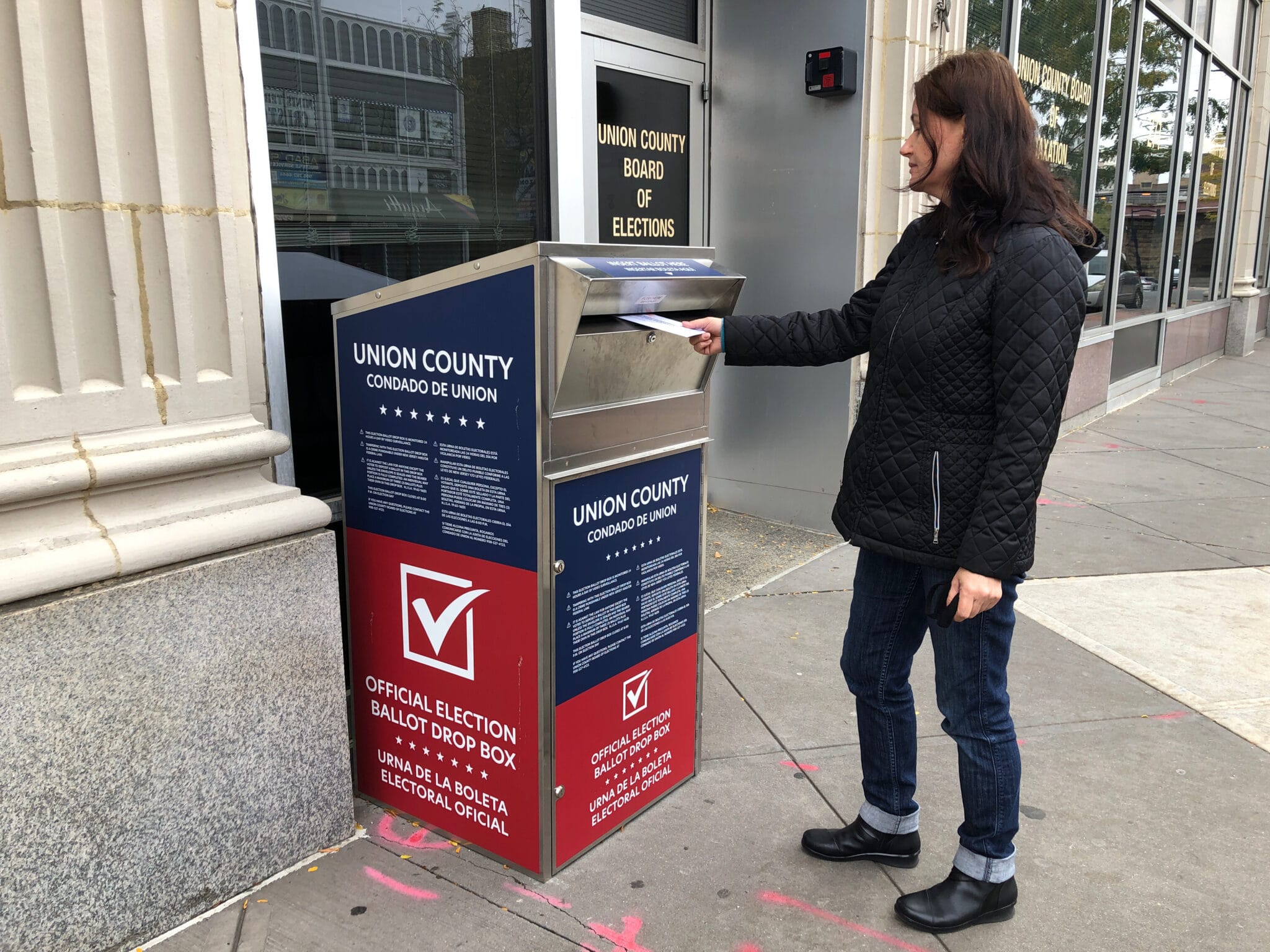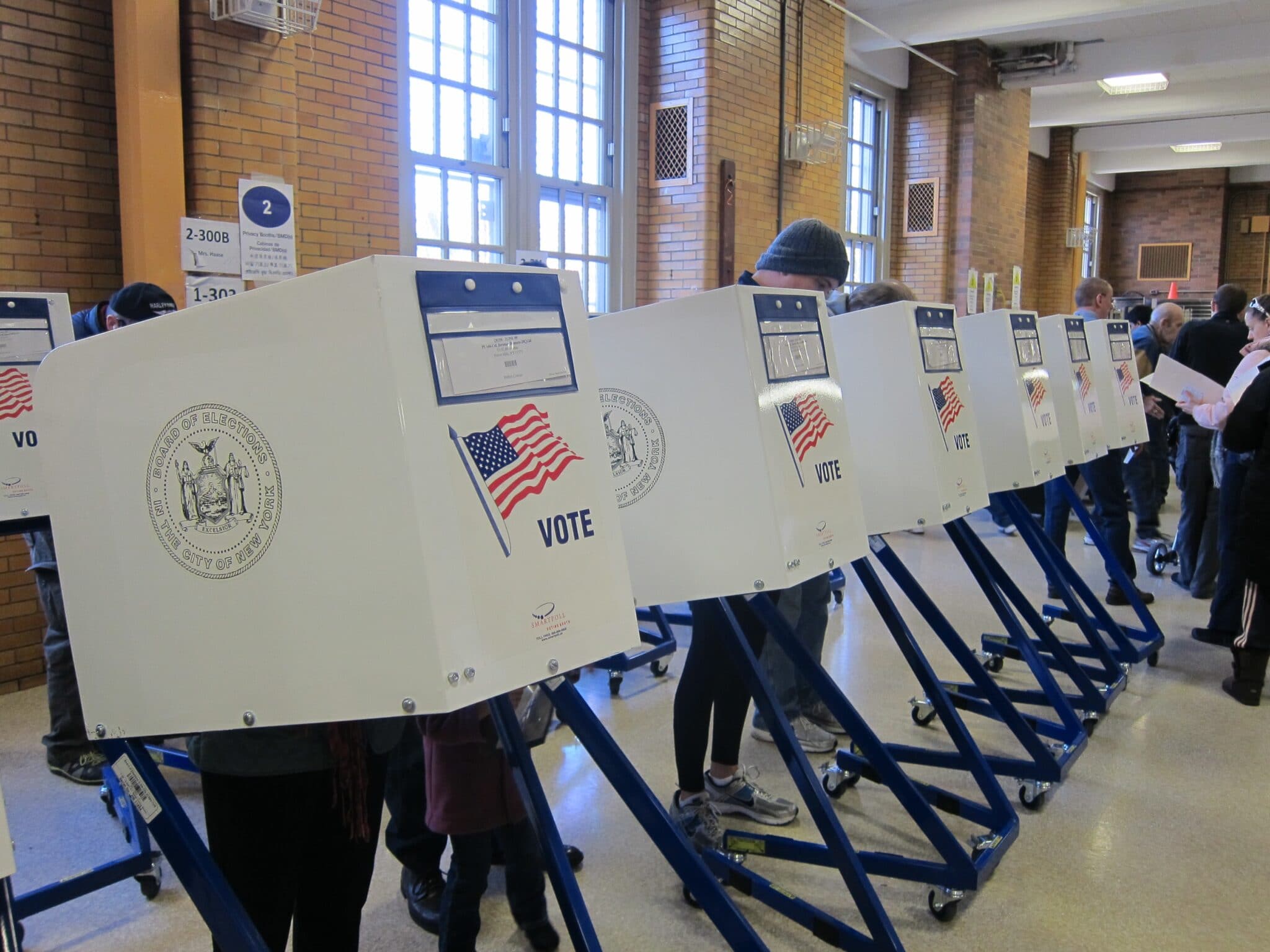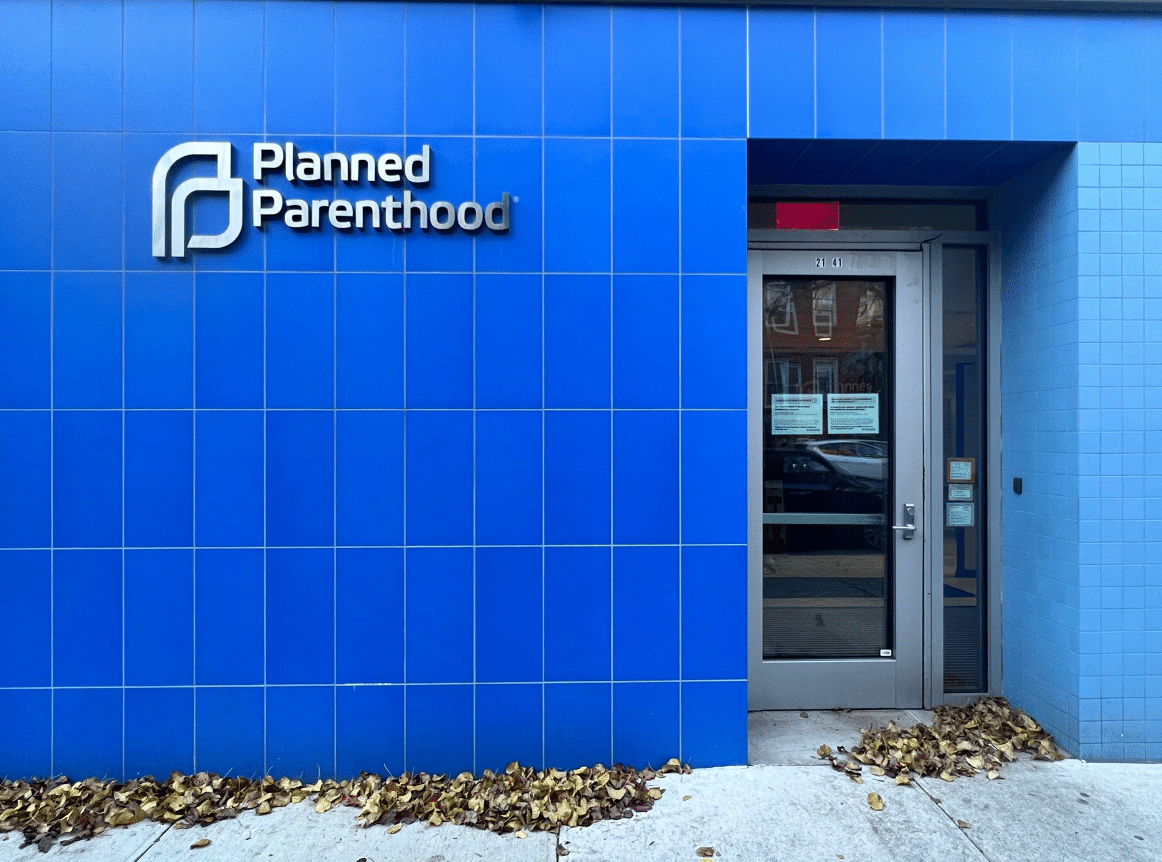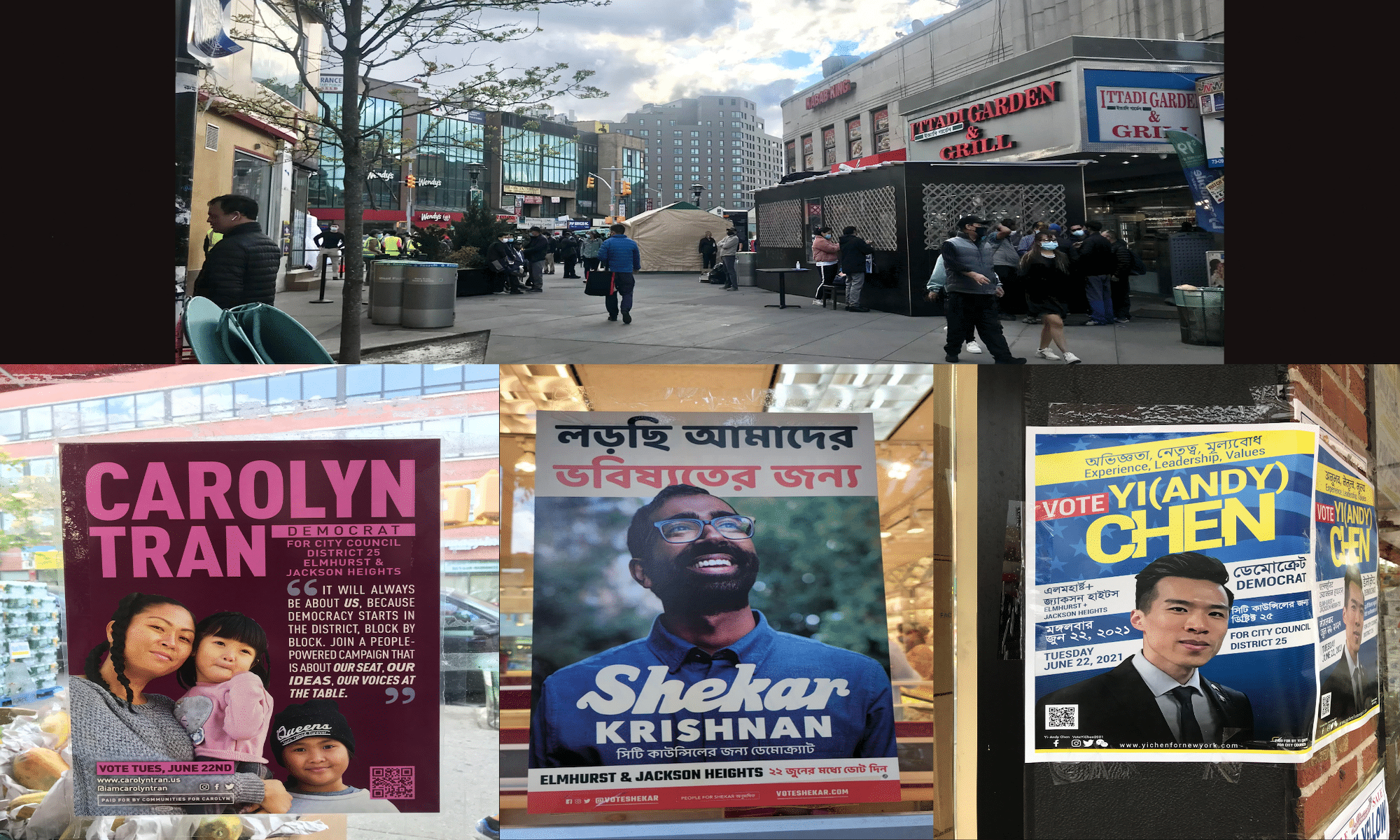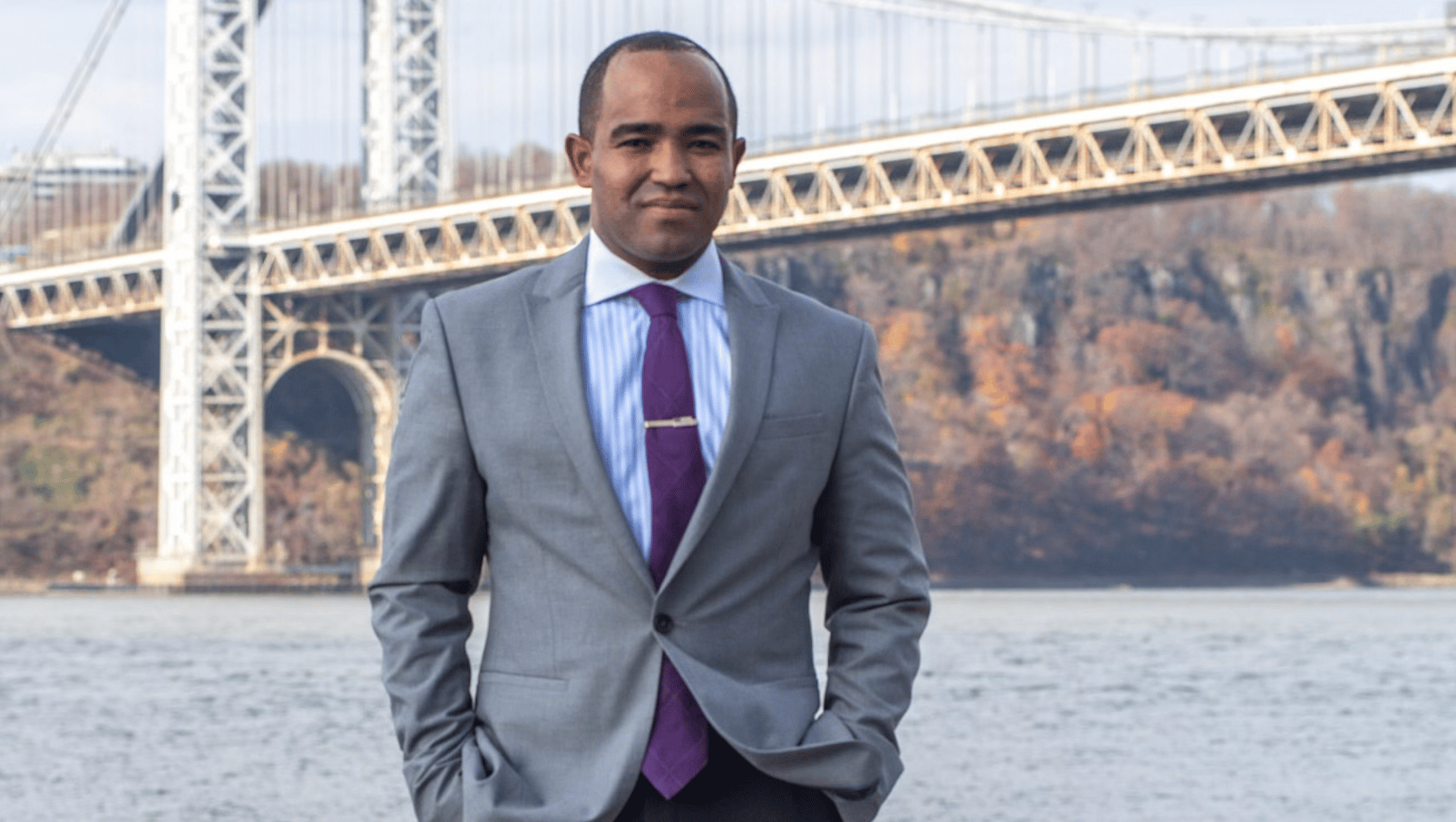Representative Alexandria Ocasio-Cortez tried to get the recent Infrastructure Bill tied to the Build Back Better Act to provide help for immigrants. Image: a slide from AOC's Town Hall.
Young New Yorkers wonder if the political wrangling in Washington will add up to anything for them. They question whether they will see changes in things they care about like immigration, transportation and climate change.
Representative Alexandria Ocasio-Cortez held a virtual town hall on November 18. She discussed why she did not vote “yes” on the $1.2 trillion infrastructure bill, which President Biden signed into law. She also took a few questions.
A DACA recipient called William didn’t give his last name. He asked about a future pathway to citizenship and said, “With all due respect, it appears that history repeated itself with the Biden Administration and that immigration reform … has become a forgotten priority.”
Ocasio-Cortez explained that she had hoped to tie the infrastructure bill to the Build Back Better Act, which the House ultimately passed. It would provide some help for immigrants. She said, “[The Build Back Better Act] has some benefits,” but it is not enough. “So, what I want to communicate is that the road to getting [a pathway to citizenship] is still there.”
Ocasio-Cortez tied the discussion to her vote. She said House progressives pushed for the two bills to be linked together. “There’s a very high political risk in terms of keeping our caucus together and being able to preserve the votes.” She fought for the $1.7 trillion Build Back Better Act because it involves programs critical for families and young people. It contained provisions for healthcare, affordable housing, immigration reform and climate change. She feared moderates would not support the second bill if they received infrastructure dollars separately. Two Senate moderates, West Virginia’s Joe Manchin and Arizona’s Krysten Sinema, have so far not agreed to vote for it when it reaches the Senate floor.
It is this political back-and-forth between the House and the Senate that tires the younger generation. City College of New York (CCNY) student and self-declared activist Scarline Martinez, 20, said, “Politics are tiring. What is the point of electing these representatives if they are too scared to actually try to make a change?”
But some young people haven’t given up on politics and see that these two plans can help.
Lehman College student Steven Carbajal, 22, said, “I feel like there will never be a perfect bill. My hope is that the infrastructure bill will at least stimulate the economy and get money flowing back into the city.” Another Lehman student, Edil Abreu, 21, told us, “Inflation has been crazy. If the bill alone can correct some of the issues with our economy, that’s something.”
At the town hall during the question-and-answer period, Gabriela Godula asked how the infrastructure bill would benefit Queens residents who depend on busses that deliver imperfect service. Ocasio-Cortez explained, “Many of the investments in the bipartisan infrastructure bill were not … structured for equity.” The second bill is necessary to equitably disburse funds to vulnerable New York communities, not just tourist locations. At the moment, New Yorkers can only celebrate that the MTA fare will not increase in upcoming years.
Ocasio-Cortez also argued that we need to do more to fight against climate change. This fight begins with the Senate’s approval of the second bill, which invests $555 billion into the cause. The congresswoman emphasized that the 26th annual United Nations Climate Change Conference in Glasgow was critical for the world. This followed the IPCC announcement that declared humanity is approaching code red because of greenhouse gas emissions.
Yet, City College student Amani Rodriguez, 21, doesn’t believe the second bill will survive the Senate. After attending the town hall, she told us, “The government will never put any actual laws in place to combat [climate change].” She argued, “It’s ironic that our representatives are taking private jets to these green conferences, and (they) expect us to believe they want to help.”
Tags: Alexandria Ocasio-Cortez AOC AOC Town Hall Climate Change CUNY Journalism Immigration Immigration Reform Infrastructure Infrastructure bill Mta public transportation The City College of New York Town Hall
